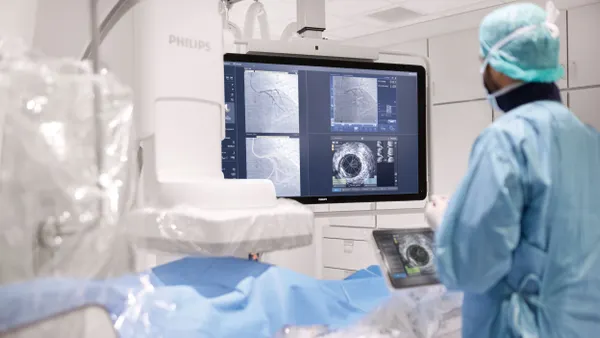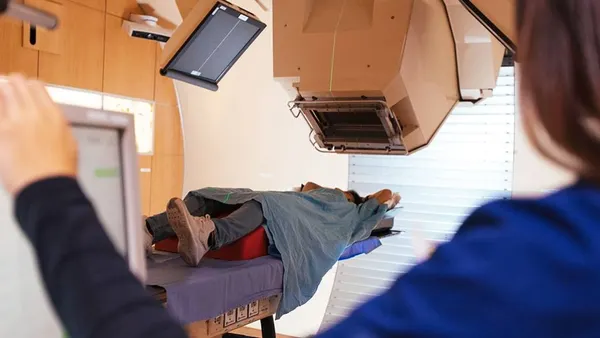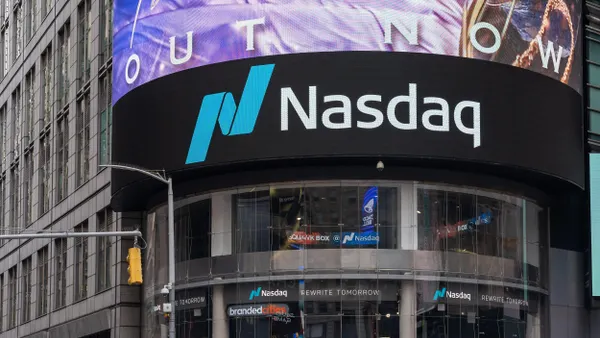Dive Brief:
- Quest Diagnostics on Tuesday reported a 1.8% increase in third-quarter revenue but reduced its full-year revenue forecast, saying its business remains pressured by an industry-wide decline in hepatitis C testing and reduced reimbursement for prescription drug monitoring and Vitamin D tests.
- Secaucus, N.J.-based Quest is focused on boosting revenue through acquisitions, CEO Stephen Rusckowski said on the company's earnings call. Quest announced the acquisition of three laboratory businesses during the third quarter alone.
- The CEO said the American Clinical Laboratory Association will appeal a judge's decision last month to dismiss the group's challenge to the new CMS reimbursement schedule that has cut payments for clinical lab testing. The lab trade group formally filed its notice of appeal last Friday.
Dive Insight:
Jefferies analysts noted "the emergence of new headwinds" including a boost in bad debt, incremental non-Medicare pricing cuts, and volume challenges, among other factors.
"These issues have brought new uncertainties to the company's earnings outlook that will dampen [near term] growth and also result in downward EPS adjustments," for fiscal year 2019.
Quest reported more bad debt amid rising patient deductibles and an increase in the number of uninsured Americans.
The CEO reiterated the company's goal of adding 1% to 2% to revenue growth through acquisitions, saying Quest was already positioned to achieve this goal through the three deals the company announced in the quarter.
Among growth initiatives, the company is making progress on expanding its retail tie-in with Walmart and anticipates having more than 200 patient service centers in stores by the end of 2018, Rusckowski said.
Quest expects “significant” growth opportunities, he said, from a new long-term contract with UnitedHealthcare to operate as a preferred national laboratory for the insurer's members starting Jan 1. The pact will provide in-network access to Quest Diagnostics' laboratory services.
The company is also working to improve operational efficiencies, moving to a new online customer service system that has cut calls to the company by 10%, the CEO said.
Quest recently acquired the laboratory assets of Hurley Medical Center in Michigan, Hooper Holmes/Provant Health of Kansas, and Seattle-based PhenoPath. The deals give Quest expanded capabilities in women's health, molecular oncology and infectious disease, the company said.
The trade group ACLA alleged in its lawsuit that HHS failed to comply with congressional intent in the Protecting Access to Medicare Act (PAMA) of 2014 and is unlawfully using flawed data in moving to a market-based payment system for clinical lab testing. "This is of course disappointing for our industry and potentially harmful for Medicare beneficiaries," Rusckowski said of the court's decision.
He noted that the judge who dismissed the case for lack of jurisdiction said ACLA’s arguments "raise important questions." ACLA is also pursuing a legislative response to address the issue. Nonetheless, the company is planning as though “PAMA is here to stay” and expects further industry consolidation as small labs struggle a result of the associated reimbursement cuts, Rusckowski said.
For the third quarter ended Sept. 30, Quest reported a 1.8% increase in revenue to $1.89 billion and 32.7% rise in reported earnings per share, to $1.53. Third-quarter excluding amortization increased 25.4% to $1.68 per share.
The company said it now expects full-year 2018 revenue of about $7.62 billion, below its previous forecast for revenue of $7.7 billion to $7.74 billion adjusted earnings per share are now expected in a range of $6.53 to $6.60, compared with the previously forecast $6.53 to $6.67.
The stock ended down about 6% following release of its earnings numbers.












